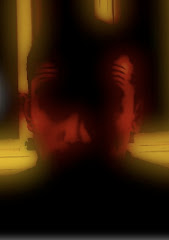Part of a phone conversation I had today with someone in Beirut:
Me: How are things?
Beirut: Eh.
Me: Do you think its going to get bigger?
Beirut: Probably.
Me: No, I mean… isn’t this how it started last time?
Beirut: (silence)
Me: This is how it started last time.
Beirut: Yeah it is… (longer silence)
What a strange feeling. Vacationing with my brother in Provence in a an old stone house with a pool, a garden containing fig and olive trees, rosemary bushes big enough to hide in, mint so abundant that every breeze carries with its sweet perfume. Meanwhile, through newspapers and snippets of news programs you watch your homeland disintegrate. And make no mistake that’s exactly what’s happening. The state is weaker than ever and close to ceasing to function. Three hundred Islamists of unknown origin and even more mysterious motives and sources of support are giving the army as much as it can handle. Other groups in other camps are threatening reprisals raising the possibility of several other fronts opening up. And what’s more, other bigger sharks are circling this sinking ship of state: Hezbollah, Iran and Syria.
A little surreal being here.
Lebanon sat at a historic crossroads. After March 14th everything was possible, many of them good. Now many things are still possible, most of them disastrous.
The euphoria of the moment blinded everyone to the fact that Lebanon was still in a state of crisis. Our problems did not leave on the backs of Syrian tanks. The opportunity was not to start anew but fix the problems of the past. Decades of civil war and Syrian oppression had frozen the country in a political stasis with multiple simultaneous crises. We just forgot they were crises because we had been living with them for so long.
- A sectarian system of government whose only products are deadlock, clan politics, and increased sectarianism.
- Palestinian refugees with fewer rights than their brethren in Israel.
- Hezbollah armed and dangerous.
- Massive and commonplace flouting of civil authority (not paying electricity, water and tax bills was considered normal).
- A civil service based on the twin colonial models of the two previous empires ruling Lebanon (French and Ottoman) in need of serious reform.
- A government with a vast majority of its members had shown themselves during the civil war to be completely incapable of putting anything ahead of their little fiefdoms.
Maybe there wasn’t enough time to address these problems before last summer’s war. Maybe solving these problems in a country like ours is out of the question. And maybe not trying hard enough is why we have a country like ours.
The Lebanon of my teens and early twenties is gone. It wasn’t perfect, far from it, but it provided me with some of the happiest days of my life. The Lebanon of my childhood is back, and all that Lebanon provided me with was terror, exile and exasperation.




No comments:
Post a Comment